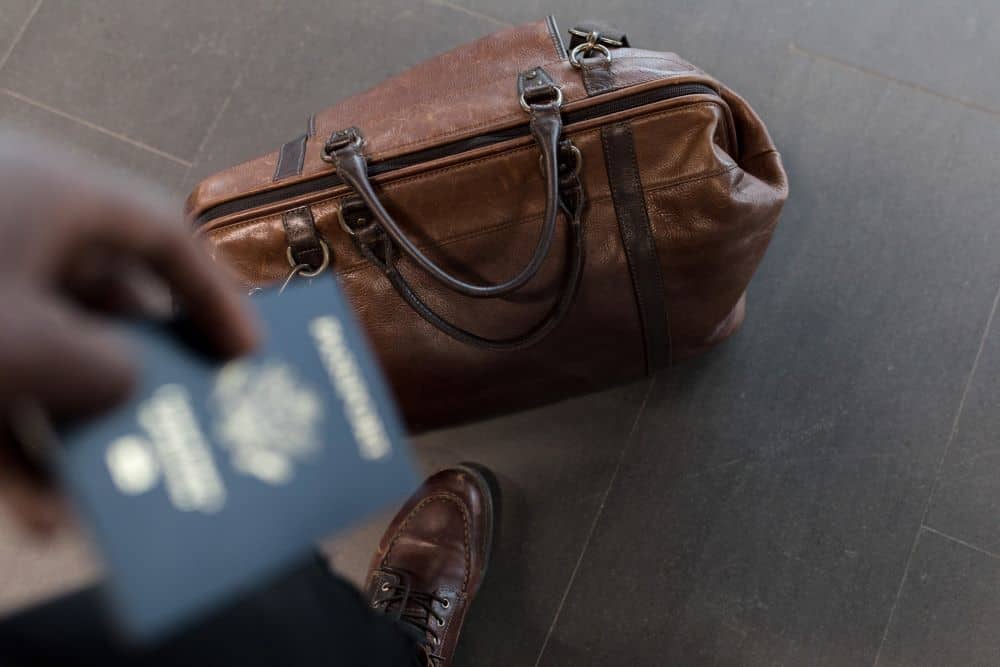Photo by nappy from Pexels
Millions of Americans travel around the world every year for business. Traveling abroad is a fact of life for many entrepreneurs and others. Making presentations, impressing clients, and striking deals are inherent features of business travel.
Seasoned professionals make traveling abroad for business presentations look easy. However, many fail to see the multitude of small details that go into making presentations successful. Here are some ideas on how to nail it every time.
RELATED ARTICLE: GOING INTERNATIONAL? THREE IDEAS TO UNDERSTAND
Cultural Sensitivity When Traveling Abroad
Thoroughness of research on the subject matter of your presentation is important. Additionally, however, there are several cultural factors to consider when you’re traveling abroad.
Knowing the Language
Knowing the local language can be a big plus. In fact, there is no better way to have an impact than to present to clients in their language. On the other hand, in case you present in English, be aware that many colloquial aspects of your culture may not be understood or well-received in a foreign culture. Common idioms, for example, may be poorly understood or misinterpreted.
Therefore, research the local culture. Be prepared to explain using local references and examples wherever possible.
Being on Time—or Not
Also, punctuality can be subjective. For example, in some Asian countries it is uncommon to start on time.
Another vital cultural aspect is attire. Notwithstanding the weather, dress codes matter a lot. Appropriate attire is important, especially for women in Oriental cultures.
Cultural sensitivity also has a bearing on interpersonal communication. For example, titles and prefixes are more important in some countries than roles. Certain cultures insist on referring to authority figures with due respect at all times, unlike how people discuss political figures in the US, for example.
Appreciating Cultural Differences When Traveling Abroad
The success of your presentation when you’re traveling abroad can be influenced by many other cultural nuances.
For example, would you have a better effect by presenting early in the day instead of later? What would immediately precede or follow your presentation? What bearing would that have on your audience’s interest and attention? How much information can you stuff into your presentation without boring your audience to sleep? Should you make it a monologue? Or is an interactive style preferable?
These and many other factors have cultural overtones. Moreover, you can best address these differences by thoroughly researching your target geography. Meanwhile, be sure to give due regard to the region’s traditions and customs.
Planning for Traveling Abroad
When you’re traveling abroad, naturally you’ll want to find savings on flights and hotels. At the same time, finalize your trip dates as early as possible. This gives you more time to prepare. Also, keep in mind that visa applications and processing can take some time.
Closer to the event date, prepare a thorough itinerary. Remember to pack light and don’t forget to take travel adapters for your electronic devices. Ideally, reach your destination at least a day early to cope with any jet lag. You’ll want to ensure that you are free from physical and mental stress on the big day.
Thorough Planning
If possible, visit the venue in advance. Speak with the facility manager to ensure that the place is set up the way you want. In other words, finding out five minutes before showtime that the projector isn’t compatible with your Mac is avoidable.
Also, copy your media onto removable storage and check to see it plays smoothly. Don’t plan to play anything directly off the Internet unless uninterrupted high-speed connectivity is guaranteed.
Logistics When Traveling Abroad
If your organization has important clients in a distant geography it is likely that you or your employees may need to travel overseas frequently. Travel-related delays, cancellations, and reschedules are costs to you and inconveniences to your employees.
Therefore, in addition to an efficient and cost-effective system for airline tickets, hotel bookings, travel insurance, car rentals, venue bookings, and so on, you must also have appropriate employee travel compensation and overtime policies. Work-life balance is critical.
Additionally, traveling abroad unavoidably involves currency conversion and moving money across borders. Sometimes you can forecast your needs in advance. Other times you cannot.
To avoid financial problems which may arise unexpectedly out of requirements and shortage of funds abroad, use an efficient service to transfer money overseas. A trusted money transfer service can be instrumental in resolving unforeseen issues quickly and securely when you’re traveling abroad.
About the Author
Sharon Kalipai is a contributing writer at Sparkwebs LLC, a digital and content marketing agency in Denver, CO. When she’s not writing, she loves to travel, dance and read books.

